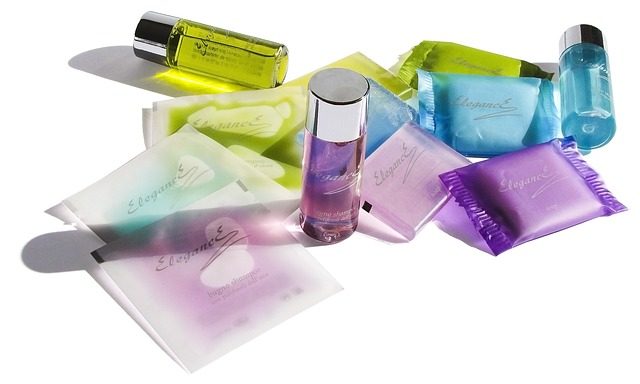What Solution does Carbon-14 Testing Offer to Personal Care Manufacturers?
Beta Analytic published an article in Personal Care Magazine entitled “Verifying natural ingredients via carbon-14 testing” detailing how carbon-14 testing can help manufacturers of personal care products. The personal care industry has seen increasing demand for “natural” products, with the natural and organic personal care products market value predicted to reach $21,776.9 million by 2024.1 The lack of clear regulations on the “natural” label means the responsibility of ensuring customers are not misled ultimately lies with manufacturers.
 Companies are also increasingly likely to check the validity of their competitors’ claims. In the US, recent settlements by the Federal Trade Commission (FTC) regarding the misuse of “all-natural” and “100% natural” claims on products found to contain synthetic ingredients indicate that the tide is slowly beginning to turn and that “100% natural” claims cannot be made at whim.2
Companies are also increasingly likely to check the validity of their competitors’ claims. In the US, recent settlements by the Federal Trade Commission (FTC) regarding the misuse of “all-natural” and “100% natural” claims on products found to contain synthetic ingredients indicate that the tide is slowly beginning to turn and that “100% natural” claims cannot be made at whim.2
Carbon-14 testing, commonly referred to as “biobased carbon testing” in the industry, can address three major challenges when catering to the demand for plant-based products — compliance with regulations and trade authorities, quality control of ingredients and labeling and marketing biobased products.
Regulatory challenges
As a result of the lack of regulatory guidance on the “natural” label, there is little consensus in the industry on what criteria a “natural” product should satisfy. Despite this, consumers do have certain expectations when buying a product labeled as “natural”. Euromonitor International found that consumers believe “natural” products are plant-derived and free from artificial ingredients.3
Although the “natural” label can be lucrative, the inability to back up the claim with reproducible testing can have both legal and financial consequences in the long term, as evidenced by the FTC’s decision in cases where the label was judged to be misleading to consumers. Through carbon-14 testing, manufacturers and suppliers are able to accurately validate whether their product is plant-derived and free of petrochemical-derived synthetics and substantiate their “natural” claims.
Quality control of raw materials
 Sourcing the often higher-priced natural materials involves navigating fluctuating markets in which pricing can be sensitive to external factors, such as a variable climate and asymmetries in supply and demand. Complex supply chains make ingredients vulnerable to adulteration with synthetic alternatives that are cheaper and easier to produce. Adulterating natural products with petrochemical-derived synthetics can be financially attractive because petroleum is a cheap and plentiful feedstock. Rigorous quality control measures are therefore necessary throughout the supply chain to ensure that plant-based ingredients have not been adulterated or compromised along the way.
Sourcing the often higher-priced natural materials involves navigating fluctuating markets in which pricing can be sensitive to external factors, such as a variable climate and asymmetries in supply and demand. Complex supply chains make ingredients vulnerable to adulteration with synthetic alternatives that are cheaper and easier to produce. Adulterating natural products with petrochemical-derived synthetics can be financially attractive because petroleum is a cheap and plentiful feedstock. Rigorous quality control measures are therefore necessary throughout the supply chain to ensure that plant-based ingredients have not been adulterated or compromised along the way.
Carbon-14 testing at Beta Analytic serves as a reproducible and standardized method to screen natural products for the presence of fossil fuel-derived synthetic components.
Eco-labelling and marketing
Although consumers demand natural products, switching entirely to plant-based materials can present a host of technical challenges for manufacturers, as not all synthetic products can be replaced by equally performing natural counterparts. The United States Department of Agriculture (USDA) BioPreferred® Program and other private biobased eco-labels recognize this and specify a minimum biobased content requirement for various product categories.
The biobased content is measured according to the ASTM D6866 standard for carbon-14 testing.4 Carbon-14 testing offers a standardized result that is also easily communicated to consumers either via a biobased eco-label or when marketing the percentage biobased content independently.
How does carbon-14 testing work?
Carbon-14 is a weakly radioactive isotope of carbon and all materials that are part of the carbon cycle will contain a known amount of the isotope. When no longer living, and therefore no longer part of the carbon cycle, the carbon-14 level will deplete according to radioactive decay. In contrast to living things that contain a known amount of carbon-14, petroleum and petroleum-derived compounds will not contain any. Measuring the carbon-14 content of a carbon-based material therefore allows for the accurate determination of biobased versus fossil fuel-derived components in the sample.
Conclusion
Carbon-14 testing is a reproducible and standardized method that can help the personal care industry make the most of rising consumer demand for natural products while tackling three major challenges —avoiding regulatory repercussions from misuse of the valuable claim, ensuring consistent quality control of raw natural materials in complex supply chains and marketing blended biobased products.
As an ISO 17025-accredited lab, Beta Analytic offers high-quality and fast carbon-14 biobased testing. For more information, please contact the lab.
References:
(1) Persistence Market Research, Global Natural and Organic Personal Care Products Market is Expected to be Valued At US$ 21,776.9 Mn by the End of 2024, 2016, (accessed April 2018).
(2) Fair, L., Are your “all natural” claims all accurate? Federal Trade Commission, 2016, (accessed April 2018).
(3) Holmes L., The Intangible Appeal of “Natural”: Growing Consumer Interest in an Unregulated Product Label, Euromonitor International, 2016, (accessed April 2018).
(4) United States Department of Agriculture, Product Categories, [date Unknown], (accessed April 2018).
This entry was posted on Tuesday, May 22nd, 2018 and is filed under Beta Analytic Updates, Biobased Products, Natural Product Testing .